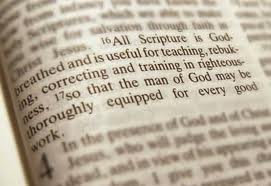Dr. Michael J. Kruger (Ph.D., University of Edinburgh) is President and the Samuel C. Patterson Professor of New Testament and Early Christianity at Reformed Theological Seminary in Charlotte, NC. He is one of the leading scholars today in the study of the origins of the New Testament, particularly the development of the New Testament canon and the transmission of the New Testament text. He is the author of numerous books including The Gospel of the Savior (Brill, 2005), The Heresy of Orthodoxy (Crossway, 2010, with Andreas Köstenberger), Canon Revisited (Crossway, 2012), and The Question of Canon (IVP, 2013). He is also the co-editor of The Early Text of the New Testament (Oxford, 2012), and Gospel Fragments (Oxford, 2009). Dr. Kruger is ordained in the Presbyterian Church in America and also serves (part-time) as Pastor of Teaching at Uptown PCA in downtown Charlotte. You can follow his blog at www.michaeljkruger.com or on Twitter @michaeljkruger. He writes:
Did Early Christians Disagree Widely on Which Books Made it into the Canon?
1934 was a big year for Germany. It was the year that Adolf Hitler became the Führer and complete head of the German nation and the Nazi party. And, as we all know, it wasn’t long after that time, that Germany invaded Poland and began World War II.
But 1934 was a significant year for another reason. Very quietly, behind the scenes, a book was published that would change the landscape of early Christian studies for years to come. Walter Bauer published his now famous monograph, Orthodoxy and Heresy in Earliest Christianity. Compared to Hitler’s rise, this was not very newsworthy. And Bauer’s book did not have much of an impact at first. But, in 1971 it was translated into English and since that time things have radically changed in the academy of the English speaking world.
As is well known now, Bauer’s main thesis was that early Christianity was a bit of a mess. It was a theological quagmire. No one could get along; no one could agree. There was in-fighting and competition between various competing factions, all warring it out about what really constituted “Christianity.” Thus, for Bauer, there was no such thing as Christianity (singular) during this time, but only Christianities (plural). And each of these Christianities, argues Bauer, had its own set of books. Each had its own writings that it valued and thought were Scripture. After the dust settled, one particular group, and their books, won the theological war. But, why should we think these are the right books? These are just the books of the theological winners.
Bauer’s thesis has seen a strong resurgence in recent years, particularly in the writings of scholars like Elaine Pagels, Bart Ehrman, and Helmut Koester. And it is the basis for a very common misconception about the NT Canon, namely that there was very little agreement over the books that made it into the canon until the fourth or fifth century. Before that, we are told, early Christianity was somewhat of a literary free for all. No one could agree on much of anything.
But was that really the case? Several considerations:
1. A core NT canon existed very early. As I noted in my prior blog post in this series (see here), there was a core canon of NT books that was well-established by the early to middle second century. These would have included the four gospels, the epistles of Paul (at least 10, if not 13), and a handful of other books. Although discussions about some of the smaller books would continue on for a while, the core books were not really ever seriously disputed. John Barton comments, “Astonishingly early, the great central core of the present New Testament was already being treated as the main authoritative source for Christians. There is little to suggest that there were any serious controversies about the Synoptics, John, or the major Pauline epistles.”[1]
If so, then the idea that Christians disagreed widely over canonical books simply isn’t accurate. At most, this occurred for just a handful of books.
2. Use of apocryphal books is not evidence of widespread disagreement. One of the most popular tactics in modern scholarship is to demonstrate that early church fathers used apocryphal books and then, on this basis, declare that there was no agreement about the canonical books. For instance, Geoffrey Hahneman rightly observes that “Christian writers of the second century refer to many other gospels beside the canonical four.”[2] However, Hahnemen then draws an unexpected conclusion from this fact: “This would seem unlikely if the Fourfold Gospel canon had already been established.”[3] But, how does this follow? Hahneman never explains how the mere use of non-canonical Jesus tradition is evidence that the fourfold gospel was not established. Why are the two mutually exclusive? Apparently Hahneman is operating under the assumption that the adoption of certain books as canonical (say the four gospels) somehow means that you can never again use material that falls outside these books. But, it is unclear where this assumption comes from and Hahneman never offers an argument for it.
When we examine the Church Fathers more closely it is clear that some of them were quite willing to use apocryphal gospels, but, at the same time, they were very clear that only our four gospels were to be received as canonical. Clement of Alexandria is a perfect example of this practice. He is comfortable using apocryphal gospels, but is always clear that they are not on par with the canonical four.
3. Instances of disagreement over canonical books are not necessarily evidence that such disagreement is widespread. A second kind of argument used by some scholars is to appeal to particular instances of canonical dissent or disagreement and use those instances as evidence that there is no broader unity about the canon. Indeed, one gets the impression that it would require an extremely high (if not unanimous) amount of agreement about a book before these scholars would regard its canonical status as decided. For instance, Hahneman rejects the existence of the fourfold gospel canon by appealing to the third-century orthodox theologian Gaius of Rome who supposedly rejected the gospel of John as a work of Cerinthus. But, does the broad acknowledgement of a fourfold gospel require zero disagreement? Does the existence of some objections to John’s gospel override the evidence that it was widely received elsewhere? With this sort of standard in place, then we would never be able to say that we have a canon, even in the modern day. There will always besome disagreement.
Another example of a place where disagreements are overplayed is Origen’s comments on 2&3 John where he acknowledges that “not all say that these are genuine.”[4] Although Hahneman uses this comment to point out that universal agreement on these epistles has not yet been achieved, he entirely overlooks the implications of Origen’s comments in the other direction, namely that apparently most Christians do consider them genuine—including Origen himself. The phrase “not all say” indicates that Origen is simply noting that there are exceptions to a more broadly established trend. Thus, it is misleading to use this passage as evidence that John’s letters were not regarded as canonical. That is more than this language can bear. At most it reveals that in certain quarters of the church some disagreements over these books continued to occur (which is hardly surprising).
In sum, there is impressive evidence for widespread agreement over the core canonical books from a very early time. Most of the disagreements dealt with only a handful of books—2 Peter, 2-3 John, Jude, Revelation. But even these disagreements should not be overplayed. We should not be too quick to assume that disagreements over a book are due to the fact that its canonical status is undecided. On the contrary, sometimes disagreements are not so much over what should be included in the canon, but are over which books are already in the canon. As David Trobisch observes, “The critical remarks of the church fathers can be better interpreted as a historical critical reaction to an existing publication.”[5]
[1] Barton, Spirit and the Letter, 18.
[2] Hahneman, The Muratorian Fragment, 94.
[3] Hahneman, The Muratorian Fragment, 94.
[4] Eusebius, Hist. eccl. 6.25.10.
[5] Trobisch, The First Edition of the New Testament, 35 (emphasis mine).
Originally posted as a blog series at Canon Fodder.





